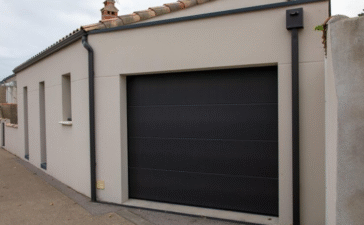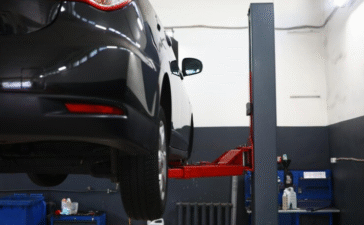A cold shower is a rough way to start the day. Unfortunately, it’s a reality many homeowners face when their water heater stops working. From strange noises to a complete lack of hot water, these issues can disrupt your daily routine and cause significant stress. While some problems are minor, others can point to serious safety hazards. Understanding the signs of a failing water heater is the first step toward a solution. Timely water heater repair not only restore your comfort but also prevent costly damage and ensure your system operates efficiently. Neglecting small issues can lead to bigger, more expensive problems down the road, including leaks that can damage your home.
As certified plumbing professionals with years of hands-on experience, we’ve seen every water heater issue imaginable. We adhere to the highest industry standards to provide safe, effective, and lasting solutions. This guide will walk you through common water heater problems, their causes, and the steps you can take to keep your unit running smoothly for years to come.
Why Is Water Heater Maintenance Essential?
Regular water heater care is crucial for extending the lifespan and maintaining the efficiency of your unit. Just like any other major appliance in your home, your water heater requires periodic attention to perform at its best. Most manufacturers recommend annual maintenance to prevent common problems before they start.
Neglecting your water heater can lead to issues like sediment buildup, where minerals like calcium and magnesium settle at the bottom of the tank. This layer of sediment forces the heating element to work harder to heat the water, increasing your energy bills and causing premature wear. Over time, these mineral deposits can also lead to corrosion, leaks, and a significantly shorter water heater lifespan. A well-maintained unit can last over a decade, while a neglected one may fail in just a few years.
Common Water Heater Problems and Their Causes
Knowing how to identify common issues can help you troubleshoot the problem and decide whether you need to call a professional.
No Hot Water: What To Do?
A complete lack of hot water is one of the most common complaints. The cause often depends on whether you have an electric or gas model. For an electric water heater, the problem could be a tripped circuit breaker or a faulty thermostat. First, check your home’s electrical panel to see if the breaker has been tripped. If it has, resetting it may solve the issue. If not, the upper or lower heating element may have failed.
For gas water heaters, the issue might stem from an extinguished pilot light or a problem with the gas supply. You can usually find instructions for relighting the pilot on the unit itself. If the pilot won’t stay lit, it could indicate a faulty thermocouple, which is a safety device that shuts off the gas if the flame goes out.
Inadequate Hot Water: Why Your Water Heater Is Struggling
If your hot water runs out much faster than it used to, you’re dealing with inadequate hot water. A common culprit is sediment buildup in the tank, which reduces the space available for hot water. Another possibility is a broken dip tube. This plastic tube sends cold water to the bottom of the tank to be heated. If it breaks, cold water mixes with the hot water at the top, resulting in lukewarm water at your faucets.
In electric models, one of the two heating elements might have failed. Electric water heaters have an upper and a lower element; if one stops working, the unit can’t heat water effectively, leading to a shortage.
Water Heater Leaks: How to Spot and Fix Them
A leaking water heater is a serious issue that requires immediate attention to prevent water damage. Leaks can originate from several places. A leak from the top is often due to a loose connection at the cold water inlet or hot water outlet pipes. Leaks from the side may come from the temperature and pressure (T&P) relief valve or the drain valve.
The most serious type of leak comes from the bottom of the tank. This usually signals internal corrosion and means the tank itself has failed. Unfortunately, tank corrosion is not repairable, and the entire unit will need to be replaced.
Rusty or Smelly Water: What’s Going Wrong?
If you turn on your hot water and notice a rusty color or a rotten egg smell, there’s a problem inside your tank. Rusty water is a sign that the anode rod has corroded or the inside of your tank is rusting. The anode rod is a metal rod that sacrifices itself to prevent the tank from corroding. Once it’s depleted, the tank itself begins to rust.
Foul-smelling water is usually caused by bacteria growing inside the tank. This is more common in homes with well water. The bacteria react with the anode rod, producing hydrogen sulfide gas—the source of the rotten egg smell. Flushing the tank and replacing the anode rod can often resolve these issues.
Noisy Water Heater: How To Handle It
Rumbling, popping, or banging sounds from your water heater are typically caused by sediment buildup. As the sediment at the bottom of the tank gets heated, water trapped beneath it boils and creates steam bubbles that make noise as they escape. This process is not only loud but also puts stress on the tank, potentially leading to cracks and leaks over time. Flushing the tank annually can remove this sediment and quiet a noisy water heater.
Professional Water Heater Repair: When to Call an Expert
While some minor troubleshooting is fine for homeowners, most water heater repairs should be left to a licensed plumber. Professionals have the training and tools to diagnose and fix problems safely and effectively. Working with gas lines or electrical components is dangerous without proper knowledge and can lead to fires, explosions, or electric shocks.
Furthermore, a professional water heater service ensures that all repairs comply with local building codes. Many DIY repairs can void your manufacturer’s warranty. Common mistakes DIYers make include incorrect wiring, improper T&P valve installation, and failing to secure gas line connections, all of which pose significant safety risks.
How to Extend the Life of Your Water Heater
Preventive water heater maintenance is the best way to ensure long-term performance and avoid unexpected breakdowns.
- Flush the Tank Annually: Flushing the tank removes sediment buildup, improving efficiency and reducing noise.
- Check the Anode Rod: Inspect the anode rod every one to two years and replace it if it’s heavily corroded. This simple step can add years to your water heater’s lifespan.
- Test the T&P Valve: Test the temperature and pressure relief valve annually to ensure it’s working correctly. This valve is a critical safety feature that prevents excess pressure buildup.
- Adjust the Thermostat: Setting your thermostat to 120°F (49°C) is sufficient for most households. This temperature reduces energy consumption and slows mineral buildup.
When to Replace Your Water Heater
Even with excellent care, a water heater won’t last forever. The typical water heater lifespan is about 8-12 years. You should consider a new water heater installation if you notice these signs:
- Age: If your unit is over a decade old, it’s operating on borrowed time.
- Frequent Repairs: If you’re constantly calling for repairs, the cost can quickly add up, making a replacement more economical.
- Rising Energy Bills: An older, less efficient unit will use more energy to heat the same amount of water.
- Leaks From the Tank: As mentioned, a leaking tank indicates internal failure and requires immediate replacement.
Water Heater Repair Costs: What to Expect
The cost of water heater repair can vary widely depending on the issue. A simple fix like replacing a thermostat might cost a few hundred dollars, while a more complex job could be more. The cost of water heater replacement also varies based on the type and size of the unit, ranging from around $800 to over $3,000 for high-efficiency or tankless models. Factors that influence plumbing services pricing include the type of unit, the complexity of the job, and local labor rates.
How to Choose the Right Water Heater for Your Home
When it’s time for a replacement, selecting the right unit is key. Consider these factors:
- Type: Traditional tank water heaters are affordable and reliable. Tankless water heaters are more energy-efficient and provide hot water on demand, but have a higher upfront cost.
- Size: The size of your tank will depend on your household’s hot water needs. A family of four typically needs a 50-gallon tank.
- Energy Efficiency: Look for the Energy Factor (EF) rating on the unit. A higher EF means greater efficiency and lower operating costs.
You would also like: “glass extensions“
Take the Next Step for a Healthy Water Heater
From strange noises to leaks, water heater problems can be a major inconvenience. Regular maintenance is the key to preventing most issues and extending the life of your unit. While some troubleshooting can be done on your own, most repairs require the skill of a professional to ensure safety and long-term functionality.
If you’re experiencing issues with your water heater, don’t wait for a small problem to become a major disaster. Contact a certified plumber for an expert inspection and reliable repair services.
Frequently Asked Questions
How do I reset my water heater?
For an electric water heater, there is usually a red reset button located near the thermostat. You may need to remove an access panel to find it. Press the button firmly. If it trips again, there’s likely an underlying issue that needs a professional’s attention. For gas water heaters, resetting usually involves relighting the pilot light according to the manufacturer’s instructions.
Why is my water heater making a noise?
A rumbling or popping noise is most often caused by sediment buildup at the bottom of the tank. As the water heats, it boils the water trapped under the sediment, causing the noise. Flushing the tank can usually solve this problem.
How often should I flush my water heater?
It’s recommended to flush your water heater at least once a year to remove sediment buildup. If you live in an area with hard water, you may need to do it more frequently.
Can I fix a leaking water heater myself?
It depends on the source of the leak. If it’s a loose pipe fitting, you might be able to tighten it. However, if the leak is from the tank itself or a safety valve, it’s best to call a professional. Working with water heaters can be dangerous, and an improper repair can lead to significant water damage or safety hazards.
How do I know when it’s time to replace my water heater?
Key signs include the age of the unit (over 10 years), frequent and costly repairs, rusty or smelly water, and visible leaks or corrosion on the tank. A sudden increase in your energy bills can also indicate that your water heater is losing efficiency and nearing the end of its life.












